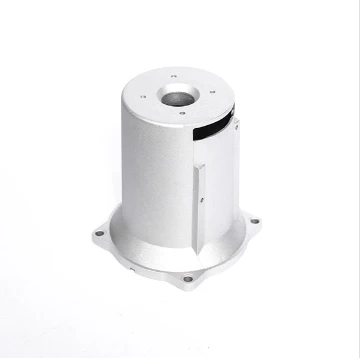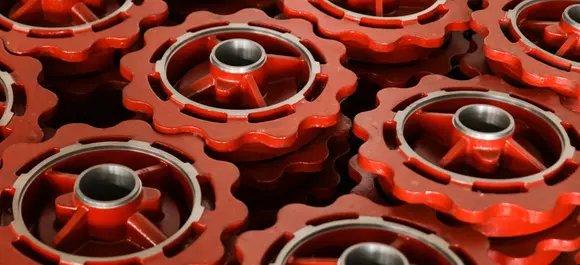Mobile:+86-311-808-126-83
Email:info@ydcastings.com
Ene . 09, 2025 11:58
Back to list
impeller
When it comes to optimizing the performance of fluid-moving devices, impellers play a pivotal role. These components are essential in industries ranging from pharmaceuticals and food processing to water treatment and oil extraction. An impeller's design, material, and efficiency can dramatically impact a system's overall productivity and reliability.
Recent advancements in computational fluid dynamics (CFD) have revolutionized impeller design by allowing for precise simulations and optimizations. Through CFD, engineers can predict flow patterns and force distributions more accurately, leading to innovations that improve efficiency and reduce energy consumption. These advancements not only enhance the impeller's performance but also prolong its operational life by minimizing erosive and corrosive wear. Trust in a quality impeller is reflected in its certifications and adherence to industry standards. Established manufacturers conform to ISO 9001 and other relevant industry standards, ensuring that their products meet the highest quality parameters. Such certifications provide a level of trustworthiness that is crucial when selecting components intended for critical operations. Finally, expertise in specific applications can greatly enhance impeller performance. Case studies demonstrate that impellers optimized for specific applications, such as marine propulsion or industrial agitation, significantly outperform generic ones. Knowledge and experience in these specialized fields lead to tailored solutions that provide precise functionality and efficiency, enhancing both profitability and sustainability for organizations. In summary, impellers are more than just simple components; they are critical elements that dictate the effectiveness of fluid-moving systems. Their design, material, and suitability to specific applications significantly impact operation efficiency and longevity. Leveraging modern design tools and materials, and relying on reputable manufacturers ensures that industries harness the full potential of impellers, ultimate improving their operational outcomes.


Recent advancements in computational fluid dynamics (CFD) have revolutionized impeller design by allowing for precise simulations and optimizations. Through CFD, engineers can predict flow patterns and force distributions more accurately, leading to innovations that improve efficiency and reduce energy consumption. These advancements not only enhance the impeller's performance but also prolong its operational life by minimizing erosive and corrosive wear. Trust in a quality impeller is reflected in its certifications and adherence to industry standards. Established manufacturers conform to ISO 9001 and other relevant industry standards, ensuring that their products meet the highest quality parameters. Such certifications provide a level of trustworthiness that is crucial when selecting components intended for critical operations. Finally, expertise in specific applications can greatly enhance impeller performance. Case studies demonstrate that impellers optimized for specific applications, such as marine propulsion or industrial agitation, significantly outperform generic ones. Knowledge and experience in these specialized fields lead to tailored solutions that provide precise functionality and efficiency, enhancing both profitability and sustainability for organizations. In summary, impellers are more than just simple components; they are critical elements that dictate the effectiveness of fluid-moving systems. Their design, material, and suitability to specific applications significantly impact operation efficiency and longevity. Leveraging modern design tools and materials, and relying on reputable manufacturers ensures that industries harness the full potential of impellers, ultimate improving their operational outcomes.
Next:
Latest news
-
Why Should You Invest in Superior Pump Castings for Your Equipment?NewsJun.09,2025
-
Unlock Performance Potential with Stainless Impellers and Aluminum End CapsNewsJun.09,2025
-
Revolutionize Your Machinery with Superior Cast Iron and Aluminum ComponentsNewsJun.09,2025
-
Revolutionize Fluid Dynamics with Premium Pump ComponentsNewsJun.09,2025
-
Optimizing Industrial Systems with Essential Valve ComponentsNewsJun.09,2025
-
Elevate Grid Efficiency with High-Precision Power CastingsNewsJun.09,2025
Related PRODUCTS











